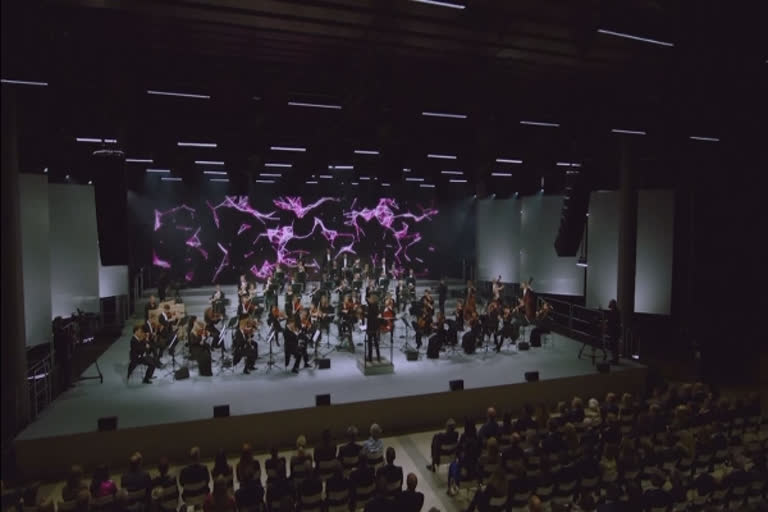Austria (Vienna): Before his death, Ludwig van Beethoven had started writing the 10th symphony. But only a few notes and musical sketches were left.
In 2019, almost 250 years after his death, a team of international music and Artificial Intelligence (AI) experts were put together to complete Beethoven's unfinished symphony. The idea was to use AI to analyse and learn from all of the data of Beethoven's artistic legacy given by the team and see what it could come up with.
Austrian composer Walter Werzowa, who lives in Vienna, where the composer spent most of his life, participated in the translation of Beethoven's work.
"We took these (existing sketches by Beethoven for his 10th symphony and all of Beethoven's work) and translated them in MIDI, this music language which we then copied into the AI system," says Werzowa.
"Afterwards, the AI interpolated because it learnt how Beethoven composed, how Beethoven developed, and it gave us methods and variations back."
For Werzowa, it was quite exciting to discover every morning variations of Beethoven's work and themes to choose from, that his US colleagues from the Rutgers university were sending overnight.
"I always received those on the next morning after I sent them and this was interesting: I was sending a few files with those seeds, those themes to (AI expert at Rutgers University, USA Prof. Dr. Ahmed) Elgammal in the evening. Because of the time difference, in the morning, I got up early, quite excited and ran to my computer to find hundreds of possibilities which were formulated overnight, well during my night. And it was always a beautiful morning occupation, drinking tea and coffee, while listening and choosing those Beethoven inspirations," said Werzowa.
And how did that master computer look like? The answer turned out to be quite disappointing.
READ: No Time to Die London Premiere: Bond attracts glitz, glamour and celebrity galore - video
"I asked him many times 'please send me pictures' and I was so curious, it's like I imagined like this Star Trek, Star Wars kind of thing, with kilometres of computers," said Werzowa.
"He never sent it to me over the two years and finally he did after this whole thing was done. And what he showed me was basically a computer rig which looks like my son's computer rig so it was actually disappointing. This is it? This made that amazing work?"
Some critics say the AI was never lovesick, never drunk or neither threw an ice bucket over its head - things that Beethoven did. But for Werzowa, this doesn't change the music itself - the notes, which are being fed into the AI.
The emotions certainly influenced Beethoven in how to write his masterpieces, but it is its output, the scores that are being analysed by the machine.
Of course, the machine didn't achieve the result presented in Bonn on Saturday, on its own. Humans Werzowa and the team of musicologists and AI experts chose the themes that came out and arranged them.
It took them a while and with the Covid-19 pandemic kicking in, they missed the 250th birthday deadline. But this extra time was used to refine the work and make this now-completed symphony an even better work of art.
AP



